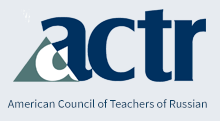Russian Language Journal
Keywords
digital humanities, Russian language teaching, Russian culture
Abstract
In their introduction to the January 2020 issue of the PMLA dedicated to varieties of Digital Humanities (DH), Booth and Posner (2020) describe the “interdisciplinary collaboration,” “technical experimentation,” and the promotion of “public engagement and humanistic knowledge and understanding” that DH offers scholars and practitioners (10). They go on to reflect on the past two decades of research and practice in the expansion of DH through information studies, libraries, and departments of English. In a related manner, it is our intention to provide both an overview of the history of DH in academia generally, and also its applications to the teaching of Russian language and culture, in particular, examining several past and current DH projects in Russian-related areas. In so doing, we strive to create a portrait of DH within the historic context of academic inquiry with the aim of demonstrating its robust applicability to Russian language and cultural studies. Finally, any contemporary portrait of DH– or any other frame for scholarship and teaching–must necessarily address issues of intersectionality and equity in terms of race, ethnicity, gender, and socio-economic access. Thus, we also discuss models of DH applications that serve in the amelioration of constraints on student access to certain types of programs of study, such as education abroad and contact with native speakers of Russian.
Recommended Citation
Krasner, I., & Garza, T. J. (2021). Digital Humanities, Access, and the Teaching of Russian Language and Culture. Russian Language Journal, 71(1). https://doi.org/10.70163/0036-0252.1312


